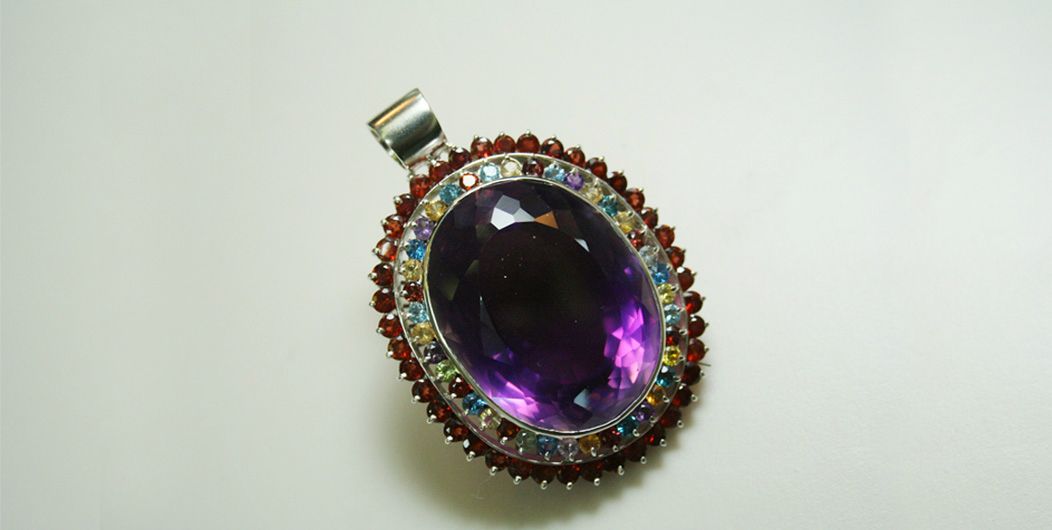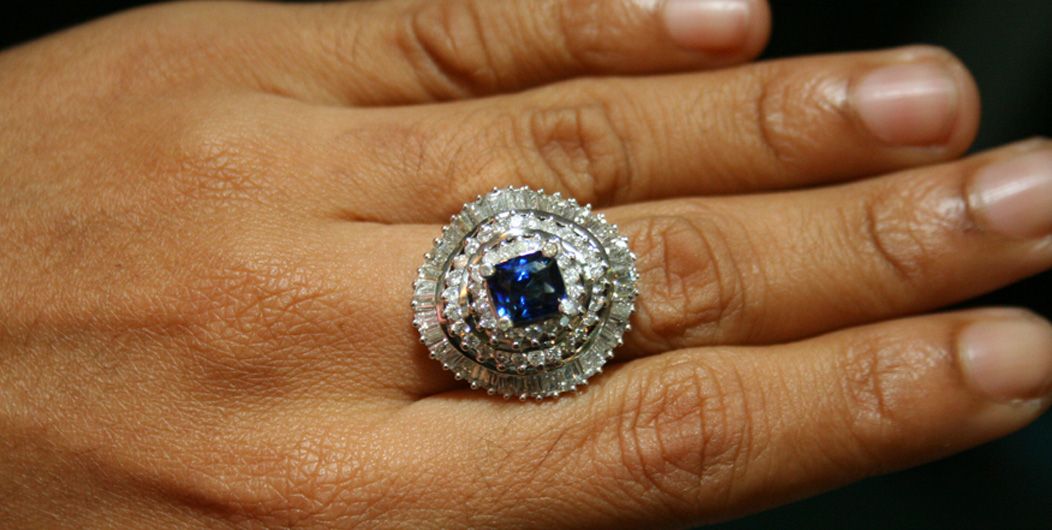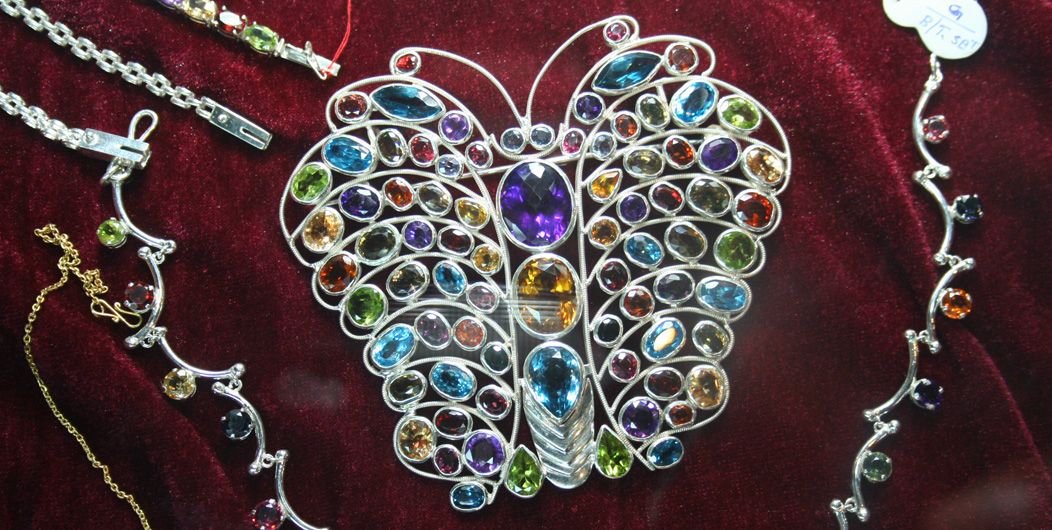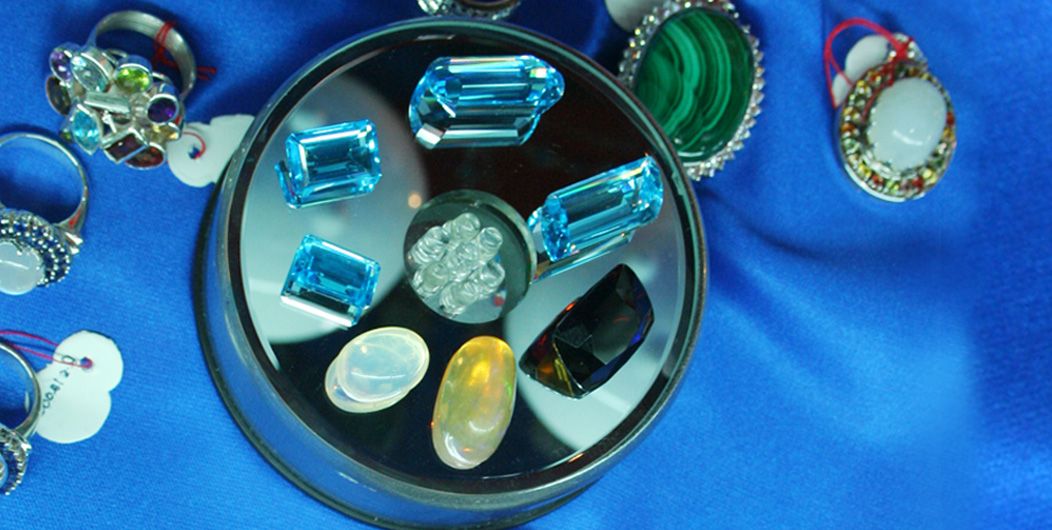



As one of the world's steadiest suppliers of top-quality Ceylon Sapphires and seventy-five other types of gemstones, Sri Lanka is one of the most important countries in the world when it comes to gem and jewellery, despite its small size. Hailed as the mythical Tarshish, the legendary island of invaluable gemstones, Sri Lanka has been the source of many celebrated gemstones, pearls and luxury jewellery throughout history and has a long association with the international gem and jewellery trade.
Today, Sri Lanka is the ninth-largest exporter of precious stones to the global market and one of the five most important gem bearing nations of the world. In addition to our globally celebrated Ceylon Sapphires, Sri Lanka is also a celebrated destination for Rubies, Padparadscha, and Moonstones while Sri Lankan lapidaries excel at faceting gemstones and diamonds to its fullest lustre. Both the artisan culture of jewellery craftsmanship and Sri Lanka’s gem industry has been widely acclaimed in literary works dating as far back as 250 B.C.
Today Sri Lanka has made its mark in the international market as a world-class gem and jewellery hub and is known for quality gemstones and creating fine jewellery in a range of unique and exquisite designs. The entire industry employs approximately 600,000 people, including miners, cutters and polishers, dealers, jewellery designers, manufacturers and craftsmen, and marketing resources.
Sri Lanka has had a long association with the global gem and jewellery trade. As a country with the highest density of gems in the world, compared to the rest of the gem producing countries, mainly due to our high availability of precious gem resources in a relatively smaller geographical area, we mine, facet and supply nearly 75 types gemstones to the global market.
Due to our long association with precious gems, Sri Lanka had been referred to as the ‘Rathna Deepa’ in many ancient chronicles including an ancient Greek merchant and navigator guide called “Periplus of the Erythrean Sea” presumed to have been compiled during the first century.
Much of Sri Lanka’s gem deposits occur mainly in alluvial gravels found in valley bottoms into which flow tributary hillside streams which carry gem minerals released by weathering from the bedrock sources located at hilltops or hillsides. Apart from the sedimentary formation which carries gemstones, some rocks also have been shown to contain gemstones, particularly varieties of Corundum. There are also gemstones associated with pegmatite which constituted an important source.
Gemstones found in Sri Lanka can be categorised into ten main species;
Mining of these gemstones continues to be a traditional and sustainable practice in Sri Lanka. A unique aspect of gem mines in Sri Lanka is that they yield a mixture of gemstones. Regulations ensure sustainable extraction of gems. While more than two-thirds of Sri Lanka’s landmass indicate the presence of gem deposits, but as yet, only up to 20% has been explored.
The craftsmanship of the country’s master gem cutters has also contributed to swelling the country’s reputation as one of the leading destinations for precious coloured stones.
Sri Lanka’s long history and culture in gem mining and faceting have long given life to artisan culture. Sri Lanka only exports cut and polished gems and most of the gem exports are precision-cut sapphires with diameters as small as 0.3 mm to leading jewellers and Swiss watchmakers across the world including Rolex, Montblanc, Tiffany, and Cartier.
A signatory of the Kimberley Process Certification Scheme, a global process established to prevent the trading of conflict diamonds or blood diamonds, Sri Lanka is also a competitive diamond faceting and trading hub.
With over 16 diamond manufacturers, Sri Lanka is the world’s largest manufacturer of tapered baguette diamonds and specializes in styling small diamonds of exceptional quality, which are imported sawn or cleaved rough. While modern precision methods of diamond cutting and faceting are being used to serve the demand for calibrated stones with stricter stones, lapidaries in Sri Lankan gem cutters follow traditional and modern methods of precious stone cutting technologies to enhance the quality of stone with the minimum weight loss.
There are around 20,000 cutters in Sri Lanka of which about 5000 are employed in the diamond cutting factories engaged in the processing of both precious and semi-precious gemstones in free sizes and calibrated sizes.
Sri Lanka has been a celebrated destination of fine jewellery cast in gold and silver and adorned with precious and semi-precious gemstones since ancient times. Gold and silver jewellery plays a larger part in Sri Lankan culture, they are an essential part of a local bride's trousseau regardless of her economic and social standards and is among the first of the investments parents make for their daughters.
Sri Lankan traditional jewellery makers were a constant fixture at international trading pots of ancient Sri Lanka, providing their service to a large number of sailors and merchants, who flocked to the shores of Sri Lanka in search of precious gems and jewellery.
Having refined their hereditary skills and traditional designs over the years to reach the pinnacle they are at today, Sri Lankan gem and jewellery craftsman combine new technologies with ancient knowledge and skills to design and produce some of the best jewellery in the international market.
The jewellery manufacturing industry in Sri Lanka mainly consists of three sectors such as manufacturing for exports, the local market and tourist industry. As a new generation of jewellery designers trade wax moulds, pencils and paper for computer-generated CAD/CAM design systems to perfect their designs, the face of local and international jewellery manufacturing is changing drastically for the better.
Today nearly 650,000 gem miners, gem cutters, gem polishers, gem traders, jewellery designer, artisans and moulders and other essential technicians work hard at an industry that caters to an established local and international clientèle in Switzerland, United States of America, Hong Kong, Germany, UAE and Japan, who favour jewellery designs encrusted with precious stones like Ceylon Sapphires or semi-precious stones like moonstones.